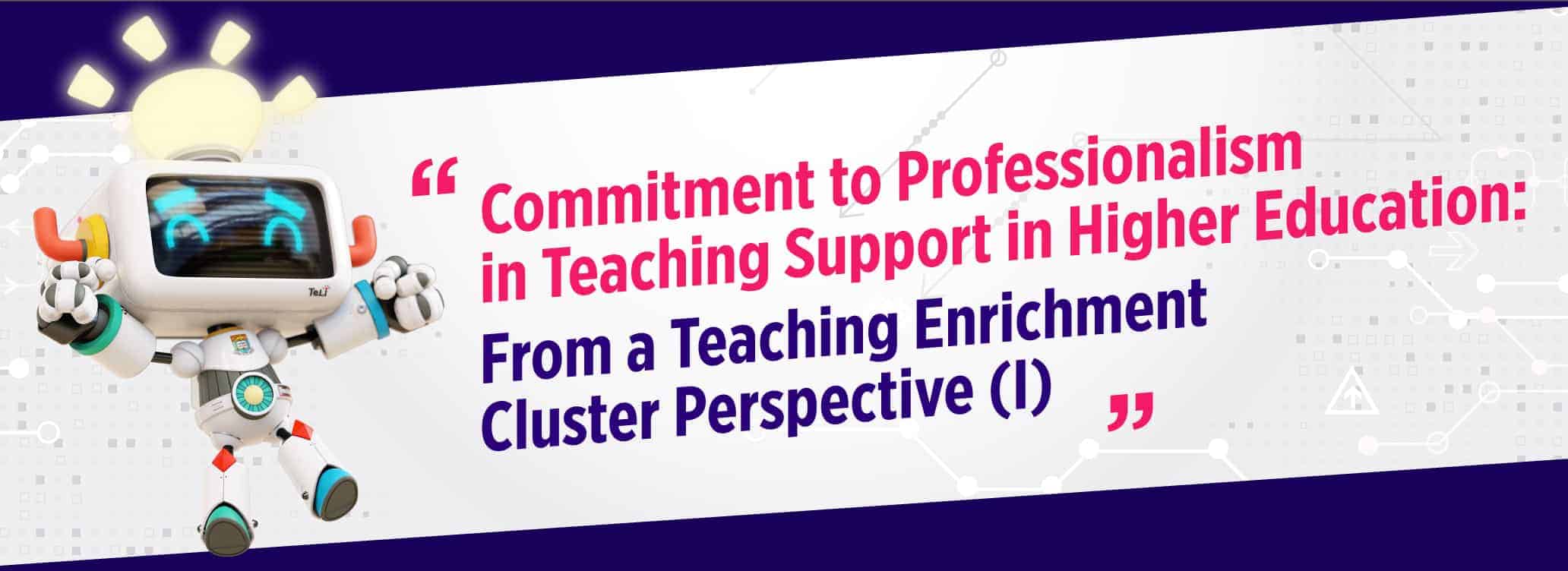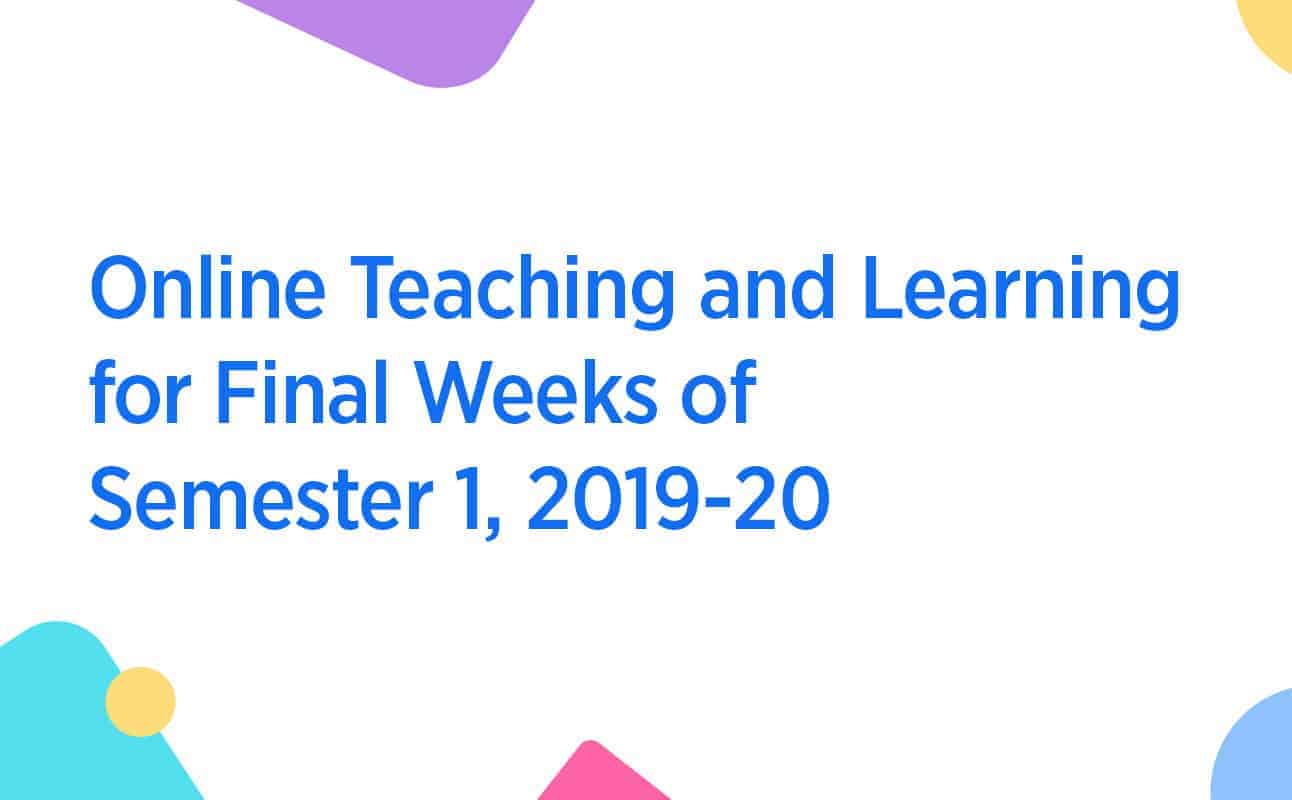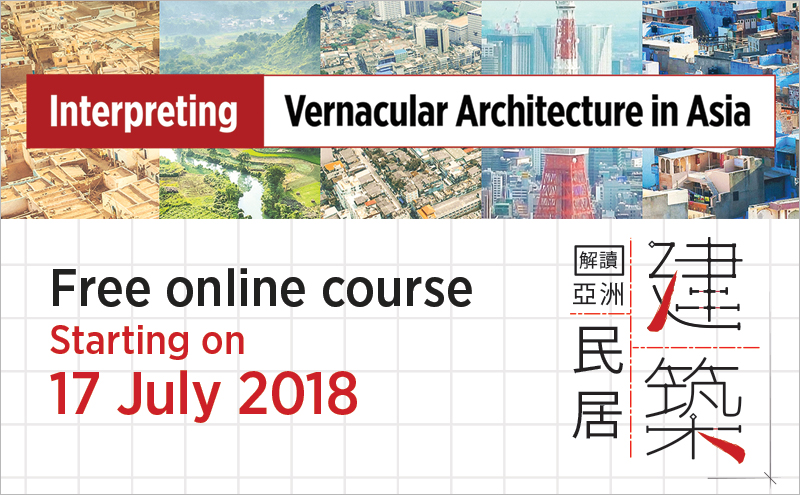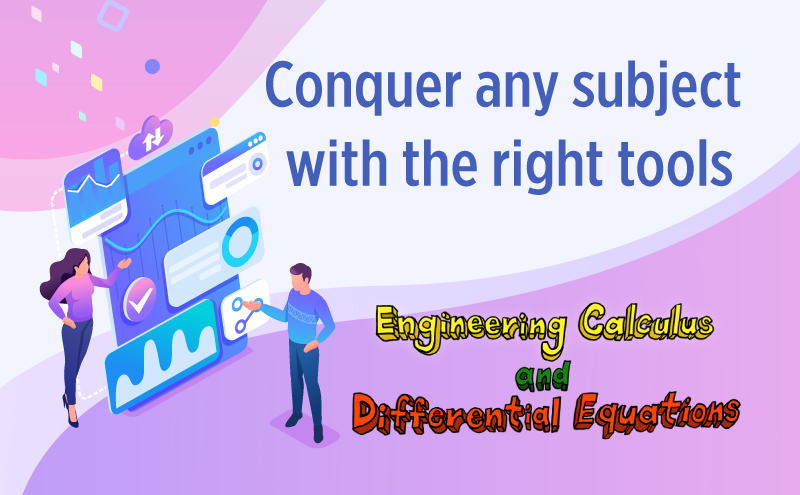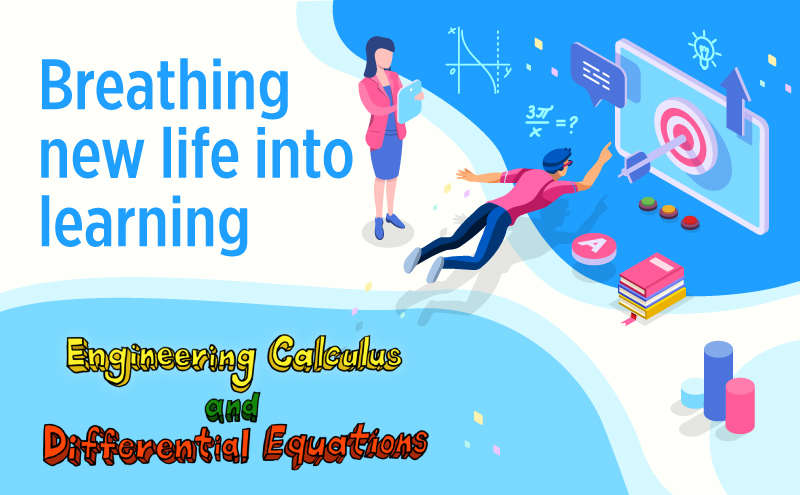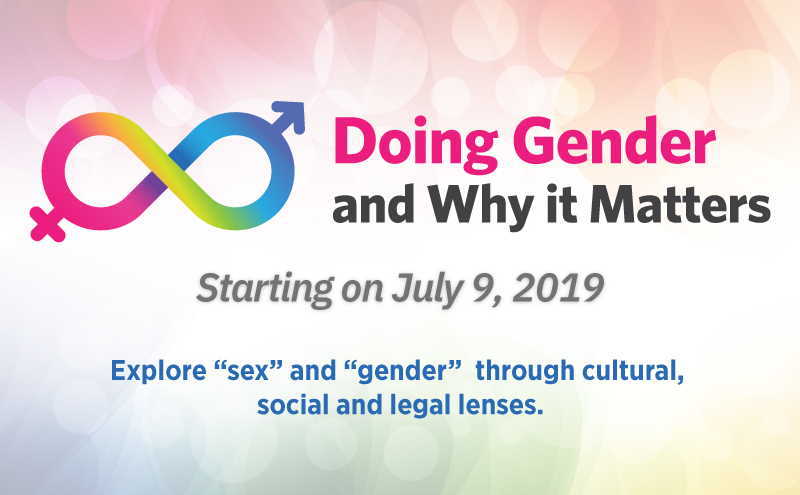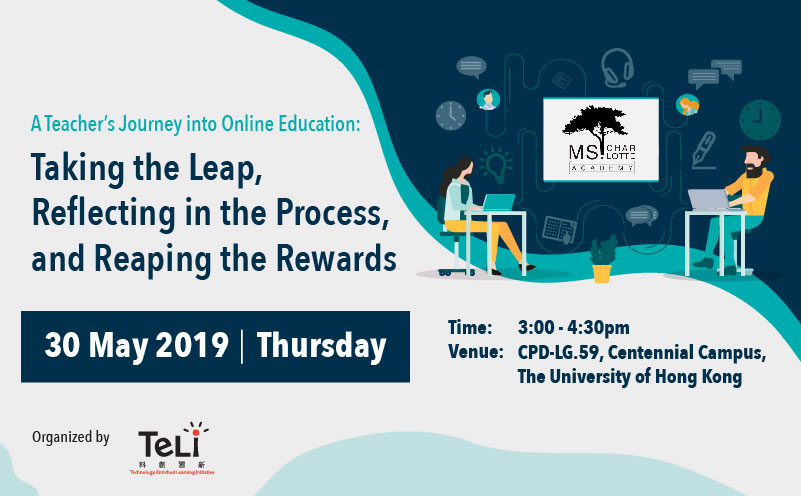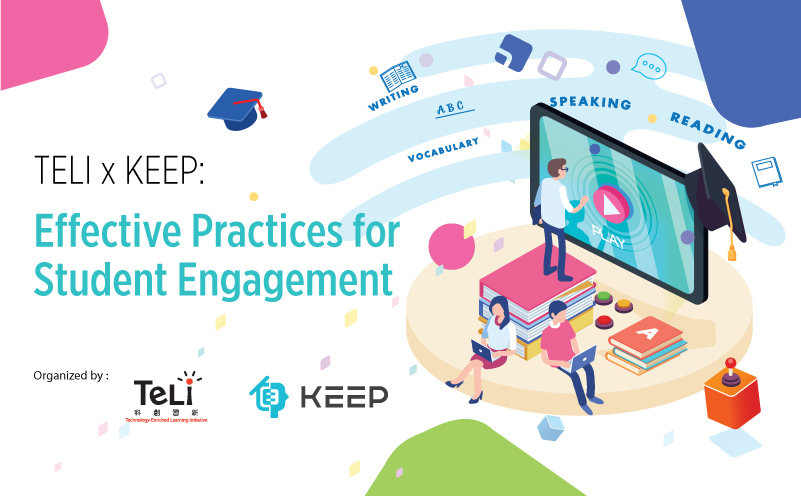
The pedagogical development cluster is an ‘innovation powerhouse’ comprised of teaching support colleagues from multiple units, including colleagues from Technology-Enriched Learning Initiative (TELI) and 4 colleagues from the Faculty of Education, Architecture and Law. The cluster support teachers in revamping teaching and learning with innovative strategies and technologies, and offer services including instructional design, technology adoption, system development and big data analytics. To be specific, we provide responsive pedagogical and technical consultancies as well as development services to the Faculties and teachers in developing and implementing e-learning, presence learning and blended learning. Colleagues strive to create quality-time (e.g. learning support beyond classroom) and quality-space (e.g. engaging in-class activities) for teachers and students with the help of technology.
In this blog post series, we will introduce colleagues’ key initiatives in the 2018-2019 academic year in terms of pedagogical development and system development.
We Aim to Use Resources in a Better Way to Benefit the University
The cluster deploy and invent cutting-edge development practices for a more effective education solution development. This enables us to support teachers and units to teach more efficiently by minimizing learning and administrative hurdles encountered by teachers and students.
Introducing Easy-To-Use Learning Tools for Collaborative Teaching and Learning Activities
To maximise quality class time, the cluster has been actively exploring pedagogical tools that best suit teaching and learning. The cluster has subscribed to online product services and shared the subscribed services with teachers who are interested in using them for lessons. Tools include Mentimeter (anonymous in-class polling), Flipgrid (video-based formative assessment), SurveyMonkey (class feedback surveying), G Suite (collaborative writing/presentation), GradeMark (rubric-based essay marking), Camtasia (screen-capturing and video editing), and Zoom (synchronous online discussion). These tools empower teachers to better engage students in class with significantly minimized logistics. For a more effective adoption, we also provide pedagogical advice on adopting appropriate e-learning tools and designing relevant face-to-face activities.
Developing Management Systems for Reducing Institutional-Level Administrative Efforts
The cluster also supports the University Teaching and Learning Quality Committee (TLQC) to develop technological solutions for achieving teaching-learning missions. For instance, the cluster has developed the teaching development grant (TDG) submission system (https://tdg.hku.hk/) and a TDG Resources Hub (https://tdg.hku.hk/hub/#/) for the University’s Teaching Development Grant Scheme. The TDG submission system provides a standardized interface for submitting, endorsing and reporting applications. Meanwhile, the Resources Hub serves as a repository of TDG resources which facilitates the sharing of information and deliverables of TDG as well as the collaborations among teachers for cross-displicine teaching development. These two systems can significantly minimize the administrative burden for teachers, administrators, and Faculty-/Institutional-level management teams.

Introducing Asynchronous Video Screening Mechanism for Streamlining Admission Process
Previously, the admission process for the Postgraduate Diploma in Education (PGDE – English Teaching) by the Faculty of Education involved face-to-face interviews with applicants. However, it is a challenging task to arrange face-to-face interviews for large numbers of applicants within a short admission period. Colleagues have worked with teachers to streamline the initial stage of the admission process. Applicants can upload a 3-minute video to illustrate their perspective on teaching and learning. Then the admission board could review the videos and shortlist applicants for the face-to-face interview.
We Aim to Meet Challenges Head on
Colleagues in the cluster supported teachers in experimenting with innovative pedagogical practices and learning technologies. These allow teachers to free up valuable class time for more interactive classroom activities where students can develop higher-order thinking skills more effectively under the teacher’s in-class mentoring.
Optimising Learning through Gamifying a Large-size Flipped Classroom
Colleagues have worked with teachers to address the most critical and long-lasting problem in large-class teaching: the one-way delivery of information in lectures and the passive learning style created by such delivery. Low attendance rate, lack of participation and interaction, and distracted students are often observed in such lectures. Most critically, the passive learning style hinders the development of critical thinking, problem-solving, creativity and collaboration – the most essential 21st-century skills for today’s students.
Colleagues introduced a systematic design of a gamified flipped classroom series in “Electronic Technologies in Everyday Life” (CCST9015), replacing one-way lecture delivery with high energy, high bandwidth information transaction, and peer-supported knowledge co-creation. Specifically, students follow a “hybrid learning pattern” repeatedly throughout the course: online lectures – online knowledge check quizzes – small-class tutorials – large-class group work – online roundup video summary. In each repetition, students acquire, practice, apply, analyze and evaluate what they have learned, and co-create new knowledge with their peers. Colleagues also support the teacher to “spice up” face-to-face time with group-based gamified activities. Moreover, a course-based board game has been developed to connect the course content with daily scenarios that students often encounter, such that students can apply knowledge in solving real-life problems. Students become more vocal in asking questions, increasing their interactions with teachers. This pedagogical practice is unique with the first-of-its-kind board game ever produced. The project has also been shortlisted for QS Reimagine Education Award 2019, a global education competition with more than 1500 applicants. This indicates the gamification pedagogy has been endorsed by professional parties.

Developing Authority-Endorsed Educational Tools for Supporting Interactive Pedagogies
We continue to support teachers exploring and implementing innovative educational tools. In order to support video-intensive blended learning pedagogies and enhance the student learning experience, we have adopted the Open edX system (https://learning.hku.hk/), first developed by the Massachusetts Institute of Technology and Harvard University, with modifications for HKU. Using this system, teachers can design courses and update the content while interacting with learners. They can easily transfer and manage content across platforms, and adopt third-party tools for enriching the learning process. During the 2018-2019 academic year, 25 courses were hosted on this platform, reaching over 6000 users in total. Based on the experience gained, we partnered with Professor Michael Botelho on developing the “Video Vox” platform (https://vox.hku.hk) to inspire more meaningful peer feedback. Vox allows new interaction possibilities with video content, which facilitates students or teachers to start an asynchronous expert-student dialogue in a discussion thread format.

We Aim to Implement New Ways of Working
Colleagues make unremitting efforts to adopt a systematic, disciplined and quantifiable approach for the better development and delivery of educational solutions as a well-designed solution can benefit thousands of staff and students. We hope the developed solutions can be easily replicated and scaled, as well as respond to the dynamic nature of teaching and learning needs.
Improving the Quality of Solutions Holistically through Adopting Technical and Pedagogical Development Guidelines
The objective of the evaluation approach is to increase the educational value of the developed solutions while minimizing technical hurdles. With this in mind, we analyse the adoption of learning tools pedagogically (through Chickering and Gamson’s learning design framework) and technically (through agile learning design framework). We have also adopted a rapid iterative approach, “Agile Learning Development”, in the context of learning which allows the developers to modify each iteration based on teachers’ feedback (a “sprint” concept). The adoption of all these practices help the developed solutions to be more learner-relevant. In addition, a case study based on this approach has been presented to and appreciated by professionals in an international meeting which indicates its potential in the development process.
Introducing Emerging Development and DevOps Methodologies for Automating System Development Process
We aim to increase developers’ productivity and improve their efficacy as well as minimize development errors. To achieve all these, the cluster has recently deployed a cutting-edge DevOps methodology “Continuous Integration/Continuous Delivery” (CI/CD) for developing learning management systems (e.g. Vox https://vox.hku.hk/). CI/CD automates testing and deployment processes. Automated testing results and logs are accessible to all developers in the team. This greatly improves team communication while reduces the time spent on running and logging tests manually.
Instead of using conventional virtual machines, colleagues have also adopted a lightweight “Docker” container technology for deploying systems for staff and students (e.g. Vox https://vox.hku.hk/, TDG Resource Hub https://tdg.hku.hk/hub/, HKCPD Hub https://hkcpdhub.hku.hk/). This technology allows more flexibility for developing systems that cater a versatile learning environment with different learning and administrative needs. For instance, it allows an application to be deployed in almost any operating systems. This technology also increases the effectiveness of system testing on the production server, and creates a more responsive system deployment. It has been proven that the overall capability and scalability of the services have increased compared with the traditional deployment approach.
The cluster has also adopted other contemporary technologies (e.g. VueJS) for productive development. All these have resulted in: increased development speed and more software release iterations, fewer bugs, reduced overhead spending and hence more time to innovate, happier users and developers.

